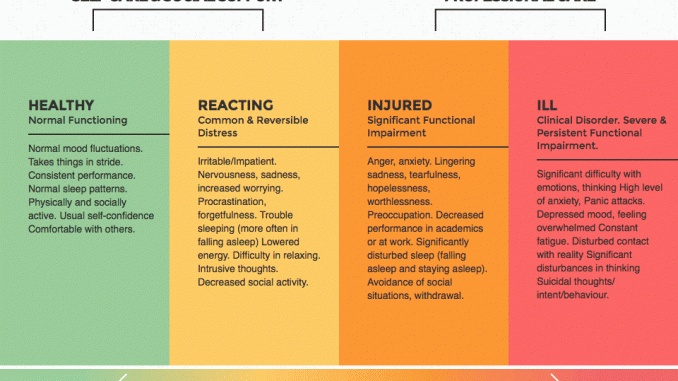
In today’s fast-paced world of technology, it’s no secret that the pressure and demands of the industry can take a toll on mental health. From long hours staring at screens to tight deadlines and high expectations, tech professionals are often at risk for developing common mental health disorders. In this article, we will explore some of the most prevalent mental health issues affecting those in the tech industry and how to recognize and address them.
Anxiety Disorders
Anxiety disorders are among the most common mental health issues experienced by tech professionals. The constant pressure to perform, meet deadlines, and stay up-to-date on ever-changing technology can lead to feelings of overwhelm and panic. Symptoms of anxiety disorders may include excessive worry, restlessness, difficulty concentrating, and physical symptoms such as rapid heartbeat and sweating.
Impact on Work Performance
Anxiety can significantly impact work performance in the tech industry. Tech professionals may struggle to focus, make decisions, or meet deadlines due to feelings of anxiety. This can lead to a decrease in productivity and quality of work, as well as strained relationships with colleagues and supervisors.
Depressive Disorders
Depressive disorders, such as major depressive disorder and dysthymia, are also common among tech professionals. The isolation and high-stress environment of the tech industry can contribute to feelings of sadness, hopelessness, and loss of interest in activities once enjoyed. Symptoms of depression may include changes in appetite, sleep disturbances, fatigue, and thoughts of self-harm.
Impact on Personal Well-being
Depressive disorders can have a significant impact on personal well-being for tech professionals. Persistent feelings of sadness and hopelessness can lead to social withdrawal, decreased self-esteem, and difficulty functioning in daily life. Without proper treatment and support, depressive disorders can worsen over time and lead to more serious consequences.
Burnout
Burnout is a common phenomenon in the tech industry, characterized by emotional exhaustion, cynicism, and a sense of reduced accomplishment. Tech professionals are at high risk for burnout due to the demanding nature of their work, long hours, and pressure to constantly innovate. Burnout can have serious consequences on mental and physical health if left unaddressed.
Recognizing Burnout
It’s important for tech professionals to recognize the signs of burnout in order to take action and prevent further deterioration. Symptoms of burnout may include chronic fatigue, irritability, decreased motivation, and difficulty concentrating. By identifying these warning signs early, tech professionals can seek support and make changes to prevent burnout from escalating.
Seeking Help
It’s crucial for tech professionals experiencing mental health issues to seek help from a qualified mental health professional. Therapy, medication, and support groups can be effective in managing and treating common mental health disorders. Employers in the tech industry should also prioritize mental health resources and support for their employees to create a healthy and supportive work environment.
Self-care Strategies
In addition to seeking professional help, tech professionals can also benefit from implementing self-care strategies to protect their mental health. This may include regular exercise, mindfulness practices, maintaining a healthy work-life balance, and setting boundaries with technology and work responsibilities. By prioritizing self-care, tech professionals can better cope with the demands of the industry and reduce the risk of developing mental health disorders.
Conclusion
In conclusion, mental health disorders are a significant issue in the tech industry that can impact the well-being and performance of professionals. By recognizing the signs of common mental health disorders, seeking help when needed, and implementing self-care strategies, tech professionals can protect their mental health and thrive in their careers. It’s important for employers and individuals in the tech industry to prioritize mental health awareness and support to create a healthier and happier work environment for all.
